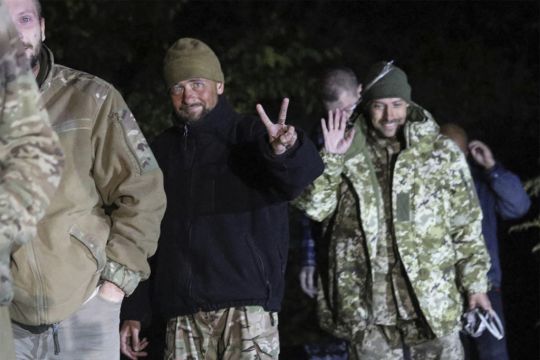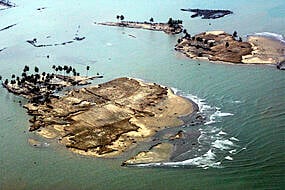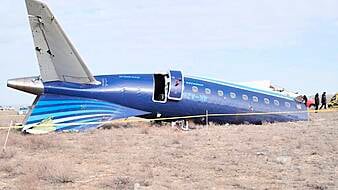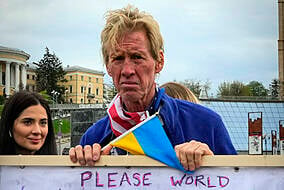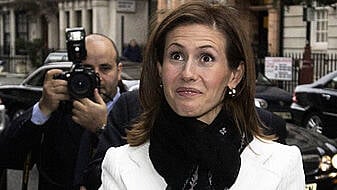Russian and Ukrainian forces exchanged missile and artillery barrages as both sides refused to concede ground – despite recent military setbacks for Moscow and the toll on the invaded country after almost seven months of war.
Russian missile strikes in the southern city of Zaporizhzhia left one person dead and five wounded, Ukrainian officials said.
Officials in the separatist-controlled city of Donetsk said Ukrainian shelling killed at least six people.
While the hostilities continued, the two sides did manage to agree on a major prisoner swap.
At the same time, Russian President Vladimir Putin began calling up reserve troops to supplement his forces in Ukraine.
Kyrylo Tymoshenko, the deputy of the Ukrainian president’s office, said a hotel in Zaporizhzhia was hit and rescuers were trying to free people trapped in rubble.
The illegal and unprovoked invasion of Ukraine is continuing.
The map below is the latest Defence Intelligence update on the situation in Ukraine - 22 September 2022.
Find out more about the UK government's response: https://t.co/bW58N6RHGn
🇺🇦 #StandWithUkraine 🇺🇦 pic.twitter.com/sjj0jzNyHx— Ministry of Defence 🇬🇧 (@DefenceHQ) September 22, 2022
The governor of the Zaporizhzhia region, Oleksandr Starukh, said Russian forces targeted infrastructure and damaged apartment buildings.
The region is one of four where Moscow-installed officials plan to hold referendums starting on Friday on becoming part of Russia, though the city itself is in Ukrainian hands.
The mayor of the separatist-controlled city of Donetsk, Alexei Kulemzin, said Ukrainian shelling hit a covered market and a minibus.
Overnight, one person was killed during Russian shelling in Nikopol, across the river from the Zaporizhzhia nuclear power station, according to the Dnipropetrovsk regional governor.
Hours before Thursday’s attacks, the high-profile prisoner swap saw the announcement of an exchange of 215 Ukrainian and foreign fighters — 200 of them for a single person, an ally of Mr Putin’s.
Denis Pushilin, head of the self-proclaimed Donetsk People’s Republic, confirmed that the Mr Putin ally, pro-Russian Ukrainian opposition leader Viktor Medvedchuk, was part of the swap.
Among the freed fighters were Ukrainian defenders of a steel plant in Mariupol during a long Russian siege, along with 10 foreigners, including five British citizens and two US military veterans who had fought with Ukrainian forces.
Some of those freed had faced death sentences in Russian-occupied areas.

A video on the BBC news website showed two of the released British men, Aiden Aslin and Shaun Pinner, speaking on a plane.
“We just want to let everyone know that we’re now out of the danger zone and we’re on our way home to our families,” Mr Aslin said in the video, as Mr Pinner added: “By the skin of our teeth.”
The continuation of Russian missile attacks and beginning of a partial mobilisation of Russians into the armed forces suggested the Kremlin was seeking to dispel any notion of weakness or waning determination to achieve its wartime aims in light of recent battlefield losses and other setbacks that undercut the aura of Russian military might.
Mr Putin’s order on Wednesday of a partial mobilisation of reservists to bolster his forces in Ukraine sparked rare protests in dozens of Russian cities and was derided in the West as an act of weakness and desperation.
More than 1,300 Russians were arrested in the anti-war demonstrations, according to the independent Russian human rights group OVD-Info.
Mr Putin’s partial call-up was short on details, raising concerns of a wider draft that sent some Russians scrambling to buy plane tickets to flee the country.
One Russian man who arrived in the Armenian capital’s airport with his 17-year-old son said he had made plans for such a scenario.

Kremlin spokesman Dmitry Peskov said the mobilisation was needed because Russia was “de facto facing all of Nato”, a reference to the military aid and other support that alliance members have given Ukraine.
Speaking in New York on Thursday, German foreign minister Annalena Baerbock praised Russian anti-war protesters and said no one inside the country can continue turning a blind eye to what is happening in Ukraine because “every Russian is now going to be at risk of being drafted into this war”.
German interior minister Nancy Faeser went further, offering concrete support to deserters.
She told the Frankfurter Allgemeine Sonntagszeitung that anyone who “courageously opposes Putin’s regime and therefore puts himself in the greatest danger” can apply for asylum in Germany.
Ratcheting up tensions, a senior Kremlin official on Thursday repeated Mr Putin’s threat to use nuclear weapons if Russian territory comes under attack.
Dmitry Medvedev, deputy head of Russia’s Security Council, said strategic nuclear weapons are one of the options to safeguard Russian-controlled territories in eastern and southern Ukraine.

The remark appeared to serve as a warning that Moscow could also target Ukraine’s Western allies.
Pro-Moscow authorities in Ukraine’s Russian-occupied regions are preparing to hold referendums on becoming part of Russia — a move that could allow Moscow to escalate the war.
The votes start on Friday and end next Tuesday in the Luhansk, Kherson, Zaporizhzhia and Donetsk regions.
Foreign leaders have called the votes illegitimate and non-binding.
Ukrainian President Volodymyr Zelensky said they were a “sham” and “noise” to distract the public.
Russia’s neighbours have been on edge about a possible threat from Russia, and one of them, Estonia, announced it is starting an exercise on Thursday for nearly 2,900 reservists and volunteers, in an apparent counter to Moscow’s announcement of a partial military mobilisation.
